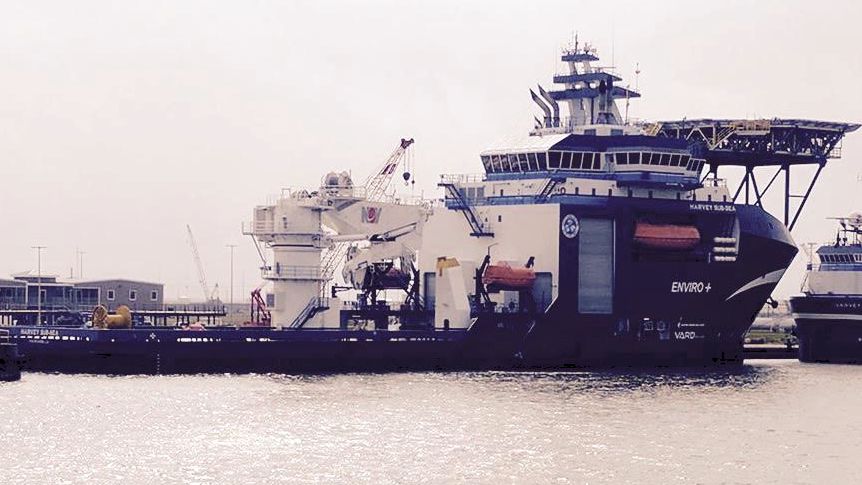Harvey Gulf Gets New Jones Act Subsea Construction Ship

On Tuesday, offshore vessel operator Harvey Gulf announced the delivery of the first in a series of two Jones Act-compliant subsea construction vessels, the MPSV Harvey Sub-Sea.
Harvey Gulf says that the ship can do the kind of field development work that is currently performed by foreign-flagged vessels – like subsea installations and removals, inspection, repair and floatel services. The second vessel in the class, the Harvey Blue-Sea, is expected in July.
“Today ends the debate as to whether the U.S. Jones Act fleet of MPSVs is capable of doing work that foreign vessels have been doing illegally in the Gulf for many years," asserted Shane Guidry, Harvey Gulf's chairman and CEO. "The Harvey Sub-Sea has the size, crane capacity, deck space, accommodation, equipment, and station keeping capability equivalent to, or better than, her foreign competitors . . . If there is a MPSV job needed in the Gulf, she can do it."
Guidry’s claim regarding unlawful foreign-flag vessel operations reflects the widespread view within the American maritime industry that the offshore market – like all coastwise trade – is closed to foreign ships by the requirements of the Jones Act. Customs and Border Protection, the arbiter of Jones Act enforcement, has recently indicated that it shares the industry’s perspective; however, for now (and for better or worse), foreign vessels are allowed to compete in the Gulf subsea construction market under a series of agency rulings.
Beginning in the mid-1980s, CBP started permitting oil firms to use foreign-flag vessels for a growing number of subsea construction activities. The change was gradual, with precedents set on a case-by-case basis in private “letter rulings” for individual oil firms. In 2009, the agency reversed course, and it announced its intention to review and potentially revoke these rulings. Anticipating new demand, firms like Hornbeck and Harvey Gulf invested a combined $2 billion in Jones Act subsea vessels. However, CBP did not take any further action for eight years.
On January 18, two days before the end of the Obama administration, CBP announced once more that it was planning to revoke the rulings. The agency’s renewed intention to strengthen Jones Act enforcement quickly became a source of division between the oil industry, which opposes the move, and America's leading maritime organizations, including AMO, OMSA and AMP.
At least one American maritime firm has called on CBP to go further than its current proposal. The company, a diversified conglomerate with operations worldwide, asked CBP to explicitly require the use of Jones Act vessels for decommissioning offshore oil facilities in the Gulf. This proposal could guarantee U.S. operators and mariners a significant volume of work: a 2015 study by the Research & Development Center for Energy Studies at Louisiana State University estimated that decommissioning in the shallow-water Gulf is a $25 billion market, with as many as 250 aging rigs taken out of service every year – and many more yet to come.
CBP has finished collecting public comments on the proposed revocation, and it is expected to announce its decision soon. A CBP agency spokesman declined to comment on the proposal.
